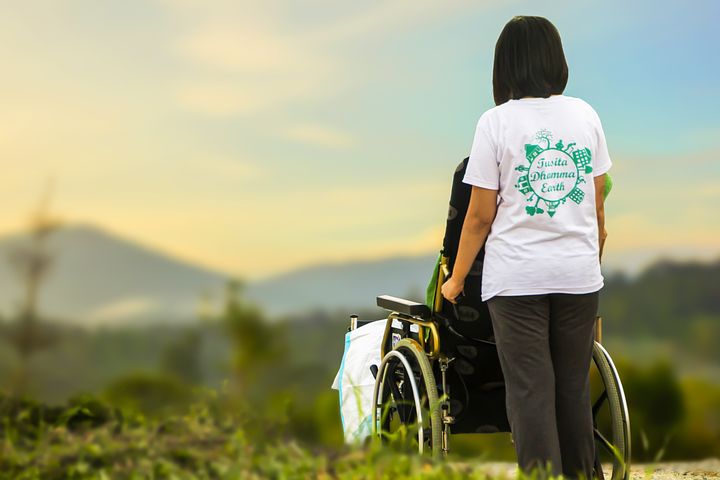
Trafficking of Persons With Disabilities (For Disability Advocates and Investigators)
Human trafficking is an egregious violation of the inherent rights and dignity of a person, and individuals with certain disabilities may be more susceptible to exploitation by traffickers. Forced labor and sex trafficking are horrific forms of abuse of a person with or without a disability. Both are crimes under the federal Trafficking Victims Protection Act of 2000 (TVPA). Pub. L. 106-386. Disability rights advocates and investigators need to play a vital role to identify and prevent trafficking of persons with disabilities as the scope of the problem has become more apparent.
Labor Trafficking and Disability
Labor trafficking is criminally defined under the TVPA as knowingly providing or obtaining labor or services from another person through force, restraint, serious harm, abuse of the legal process, threats, or by a scheme or plan to cause a person to believe that serious harm or physical restraint will occur if they do not provide the labor. 18 U.S.C. § 1589(a). The threat or harm can be either directed against the person forced to work or against another person. Those who knowingly benefit from labor trafficking are also subject to criminal prosecution. 18 U.S.C. § 1589(b). One of the first human trafficking cases in the United States involved 55 Mexican nationals who were deaf. The traffickers physically abused and forced the victims to beg and sell trinkets on the New York City subway. Trafficking of persons with disabilities can include work in sectors not usually associated with trafficking. For example, in the case of Henry’s Turkey Service dozens of men with intellectual disabilities were transported to Iowa in the 1970s and ‘80s to eviscerate turkeys. The men were paid $60 a month and lived in a dilapidated bunk house until 2009. Though no criminal charges were brought under the TVPA, the U.S. Department of Labor and the U.S. Equal Employment Opportunity Commission obtained significant civil damages for these men.
Sex Trafficking and Disability
Under the TVPA, the crime of sex trafficking involves the use of force, threats, coercion or fraud to cause a person to engage in commercial sex. If the victim is under 18, there is no need to show the use of force, threats, coercion or fraud to convict. The TVPA prohibits recruiting, enticing, transporting, advertising, patronizing, soliciting or similar activities. Those who benefit from such acts are also guilty of sex trafficking. 18 U.S.C. § 1591(a). A number of sex trafficking cases involve individuals with cognitive or mental health disabilities. In recent years human trafficking convictions have occurred in Michigan, Ohio, Pennsylvania, and Virginia for the horrific sexual abuse of victims with disabilities. In a case in Missouri, a trafficker forced a Summer 2017 Version woman with a mental health disability to engage in commercial sex to pay off a drug debt. In some cases, non-commercial sexual servitude can be prosecuted as labor trafficking or involuntary servitude. For example, Disability Rights Kansas discovered that residents with mental health disabilities at an unlicensed group home were forced to perform sexual acts and unpaid farm and house work. A jury convicted the professional couple operating the house for forced labor trafficking.
Signs and Action
Any vulnerable person is at risk of being trafficked, but individuals with intellectual, cognitive, emotional and mental health disabilities may be targeted because of additional vulnerabilities. Traffickers may seek out persons with disabilities in order to control their public benefits, such as Supplemental Security Income or Social Security Disability Insurance benefits. A trafficker may lurk outside of a group home or facility providing services to persons with disabilities, suspecting residents may attempt to leave. Law enforcement may be reluctant to believe individuals with certain disabilities and less likely to investigate or prosecute an allegation. Persons with limited communication abilities may be unable to report being victimized. Advocates and investigators should be aware of the risk that an individual may be trafficked. For those affiliated with entities such as a Protection and Advocacy organization, adult or child protective services, state survey agencies, or similar entities, paying attention to warning signs of trafficking is an important step to identify victims or prevent trafficking in the first instance. During investigations and monitoring of a facility, advocates and investigators should look for potential trafficking or risk of trafficking. This can include evidence of control above what is typical for a facility or group home, poor physical health, malnutrition, evidence of work inside or outside of a facility without proper records, or anxious or depressed behavior not consistent with the disability. Poor procedures, which fail to protect residents from potential perpetrators, such as preventing easy exits from a facility, should be identified and corrected. While many of these problems exist in facilities for persons with disabilities regardless of trafficking risks, these are still potential signs for which a more probing assessment may be appropriate. As with any investigation or monitoring of alleged abuse, use trauma effective skills to prevent further harm to a potential victim with a disability. While the TVPA requires that courts order criminal restitution be paid to trafficked victims, 18 U.S.C. § 1593, disability rights attorneys can also file for civil damages as another means to assist trafficking victims with disabilities. 18 U.S.C. § 1595.
Resources and Enforcement
National Human Trafficking Hotline, 1-888-373-7888, or text HELP or INFO to 233733 (“BeFree”);
U.S. Department of Justice, Human Trafficking Prosecution Unit and Office for Victims of Crime U.S. Department of Homeland Security;
Security Blue Campaign National Working Group on Human Trafficking and Disability
